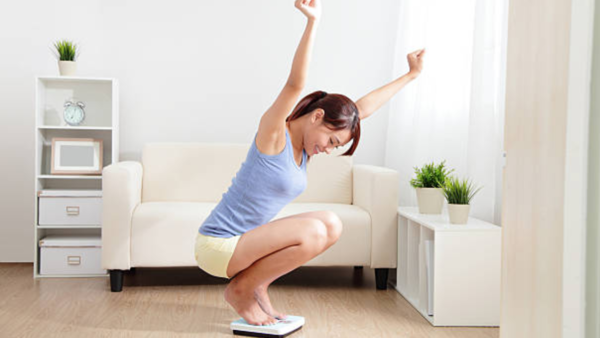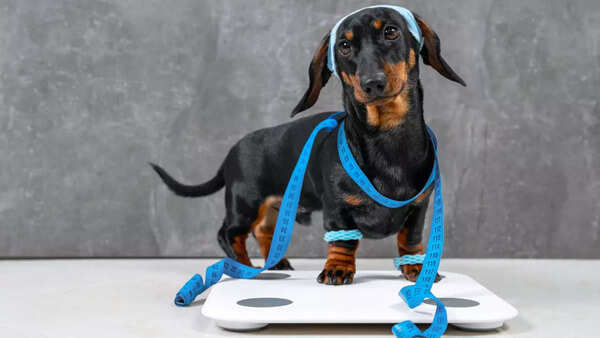Fitness enthusiasts, especially those who are trying to lose or gain weight, are obsessed with the weighing scale. While checking your progress is crucial, it shouldn’t be based only on the numbers on the weighing scale. Why? Because the scale can be a tricky tool. So, is there a right way to measure your body weight? Yes, when you weigh yourself matters. Fitness and nutrition coach Ashley DiGiacomo Schwartz (link shared below) has shared when you should weigh yourself, if you want to have an accurate understanding of your progress.

(Representational image)
The coach emphasizes that numbers don’t always tell the full story. “If you’re constantly stepping on the scale and getting discouraged, it might be because you’re weighing yourself at the worst possible times,” she shares in a post shared on Instagram. Before you understand when to weigh yourself, you should know when not to.
When not to weigh yourself?

Post-workout: People tend to weigh themselves soon after they complete their workout. It’s natural to step on the weighing scale and look for numbers, but it is important to understand progress isn’t instant. The coach notes that post-workout, the numbers on the weighing scale might be up from drinking water and eating post-workout, or down from sweating it all out. “Either way, it’s mostly just water weight, not real fat loss or gain,” she shares.
After a big meal: Just indulged in a hearty dinner? Skip the scale. The scale would tick upward. “You’re full. Of course, the number is going to be higher. That doesn’t mean you gained fat—it means you have food sitting in your stomach,” she adds.

During your period or luteal phase: The fitness coach also notes that stepping on a weighing scale while you are on your period won’t be a great idea. Hormonal changes during the menstrual cycle, particularly in the luteal phase, can cause bloating, inflammation, and water retention. And as a result, the numbers could go up. “And let’s be honest—you’re already emotional, so don’t make it worse by getting mad at the scale,” she advises.
Right before bed: After a full day of eating, drinking, and moving, your weight is naturally higher at night. Schwartz emphasizes skipping the scale right before bed, because, ‘that number means nothing’.
After a high-sodium or high-carb meal: If you ate pizza, sushi, or Chinese takeout, do not weigh yourself. “Whatever it is, sodium and carbs both hold onto water. Not fat. So if you step on the scale after a salty or carb-heavy meal, yes, it might spike up… but it’s just water weight,” she says.
When should you weigh yourself?
So the question really is, what’s the right time to step onto that scale? The fitness coach recommends weighing yourself in the morning. “First thing in the morning, after using the bathroom, completely naked,” she stresses.
Now that the ‘when’ is sorted, how often should you weigh yourself? She asks to keep it consistent. For those who prefer weekly weigh-ins, she suggests choosing a midweek day, like Wednesday, to avoid the influence of weekend indulgences. She also advises against taking progress photos after any of these times, as ‘it’s not helpful and it will just mess with your mindset’.
Read the Instagram post here:




